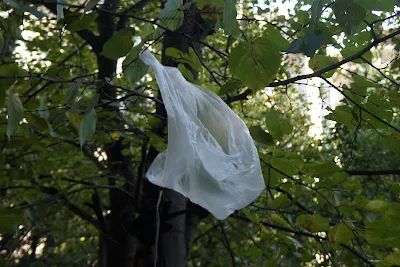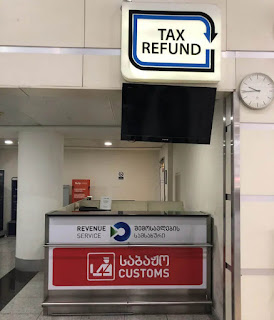The Promised Land of No Plastic Bags: Rwanda
Rwandan customs officers were using plastic bag ban as an excuse to steal belongings and to sell travellers paper bags and bad quality reusable plastic bags.
We entered Rwanda knowing about their dislike of plastic bags. The idea sounded truly wonderful. Everywhere in the world we had spotted plastic trash, even in the Darien Gap. Plastic seems to be the most visible sign of civilization and the legacy of human kind that will last for hundreds of years after we are all gone. What happened in the Ugandan-Rwandan border was a bit less wonderful.
Customs officers demanded us to open all of our bags and backpacks and started pulling out our staff that was wrapped in plastic bags in case of rain, including our laptops and camera equipment. In exchange for taking the plastic bags that had travelled with us half a decade, they offered to sell us paper bags and reusable, bad quality plastic bags. We didn't quite understand how a paper bag, that is actually polluting more than plastic bags, could somehow protect electronics from getting wet. Reusable cloth bags would be greener if used more than 131 times. At some point one of the custom officers stole Päivi's new jogging shoes that were wrapped in a plastic bag. When Päivi discovered that her shoes were missing, she started to demand them back loudly accusing officers of theft, and finally her shoes were brought back without any explanation or apology. What they forgot was to return Päivi's toothbrushes, dental floss, and lady shavers.
Hutu and Tutsi Genocide
Our Rwandan friend told us that the Rwandan genocide, where one million people got killed out of 7 million Rwandans, was not an ethnic cleansing. Hutus and Tutsis are not clans or tribes but artificially created groups by the foreign oppressors to divide the Rwandan people and conquer the country. Wealthier Hutus owned animals, while Tutsis cultivated the land. If a Hutu lost his herd, he became a Tutsi and visa versa.
The genocide was performed using machetes. The machetes had been ordered from China and paid by the French government or — to be more exact — a close circle of the then French president Mitterrand. Usually only the world's biggest arms exporters are stirring unrest and mongering fear among people to sell their weapons. Our friend lost some friends and family in the genocide, just like all Rwandans. The genocide itself has become a tourist attraction just like the Killing Fields in Cambodia.
Paranoia in Kigali
Kigali is built on hills and streets are going up and down like in La Paz, Bolivia, although the altitude is much lower, only some 1500 meters compared to over 4000 meters. The city is a strange potpourri of everything. There are a lot of armed guards in the streets and in front of supermarkets. To get in, guards search customers with metal detectors and x-ray all bags just like in the Philippines. There are not many guns, however, but the president happens to be paranoid. When he drives through the city, all the streets are closed.
The paranoia can also be seen in Kigali airport, which was quite an experience for us, even after 13 years and over 90 countries. You can get inside only three hours before your flight and that three hours is a must for getting through the check-in and security checks — despite the fact that the airport is almost all of the time empty. When we left, there were three departing flights within fifteen minutes and only 30 passengers. Our Kenya Airways flight had 10 passengers out of 100. On our way from outside to the plane, our passports and hand luggage were meticulously checked six times. The upside was getting to the airport by public bus. Number 104 goes straight to the airport from the city center and the ticket costs only 330 RWF. The trip took about half an hour.
Travel tip: If you are travelling with some extra stuff you need to get rid of, just wrap them into plastic bags and travel to Rwanda.











Comments